Soft Nano
June 18th 2015, ASRC
Invited Speakers:
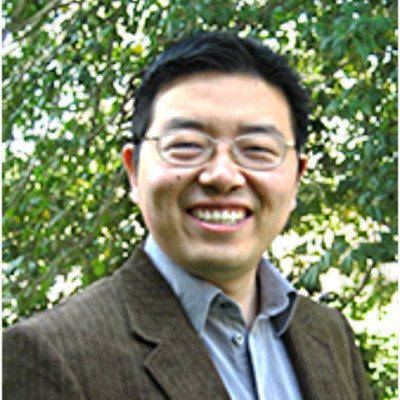
Honggang Cui
Johns Hopkins University
Honggang Cui received a Bachelor's degree in Polymer Materials Science and Engineering from the Beijing University of Chemical Technology in 1999, a Master's degree in Materialogy/Chemical Engineering from Tsinghua University in 2002, and a PhD degree in Materials Science and Engineering from the University of Delaware in 2007. He was a Postdoctoral Fellow between 2007 and 2010 in the department of Materials Science and Engineering and the Institute for BioNanotechnology in Medicine at Northwestern University. He joined the Chemical and Biomolecular Engineering Department at the Johns Hopkins University as Assistant Professor in 2010. His research efforts to date have led to both the discoveries of novel nanostructures and the development of new nanofabrication strategies. He is currently running a fully equipped lab for nanoparticle fabrication, peptide synthesis and purification, and cell culture, with the aims of developing peptide-based supramolecular nanomaterials for targeted anticancer drug delivery, tumor imaging and diagnosis, and tumor microenvironment mimicking. He is a recipient of the NSF CAREER AWARD (2013), the Tsinghua Global Scholars Fellowship (2014), and the 3M Non-Tenured Faculty Award (2015).
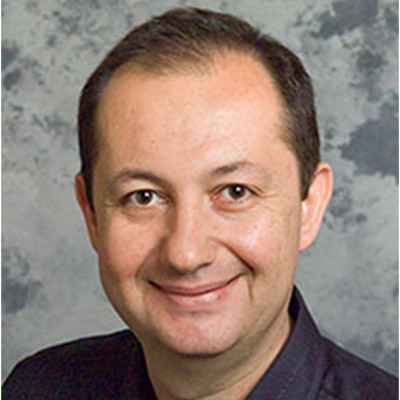
Oleg Gang
Brookhaven Laboratory
Coming Soon.

Marcus Weck
New York University
Marcus Weck obtained his Ph.D. degree in 1998 from Caltech with Robert H. Grubbs. After a two-year postdoctoral stay at Harvard University with George M. Whitesides, he joined the faculty at GeorgiaTech. In 2007, he moved to NYU where he is a Professor in the Chemistry Department and the Associate Director of the Molecular Design Institute. His research interests are in organic and polymer chemistry as well as materials science. The main foci of his group are in supported catalysis and the introduction of complexity through the use of orthogonal functionalization methods and to synthesize polymers, organized assemblies, biomaterials, and nanostructures.

Bing Xu
Brandeis University
After receiving his BS and MS from Nanjing University in 1987 and 1990, Bing Xu obtained his PhD in 1996 from the University of Pennsylvania under the supervision of Timothy Swager. Before starting his independent research at the Hong Kong University of Science and Technology in August 2000, he was an NIH postdoctoral fellow with George Whitesides at Harvard University. Notably, the Xu lab has pioneered the integration of enzyme transformation (ET) and self-assembly (SA) for developing molecular biomaterials, synthesized the first dimeric nanoparticle consisting of a quantum dot and nanomagnet for exploring nanoscience inside cells, reported the first case of using dopamine to anchor molecules on iron oxide surface, and demonstrated the first case of using enzymatic transformation and self-assembly to selectively inhibit cancer cells . He was tenured as an associated professor in Jan 2006 and became a full professor in July 2008 at HKUST. Being identified on the Thomson Reuters "highly-cited researchers 2014" list, Bing Xu currently is a professor in the Department of Chemistry, Brandeis University, and his research focuses on the applications of molecular engineering in materials, biology, and medicine.

Dorthe Eisele
CCNY
Dr. Dorthe M. Eisele was born and educated in Germany and grew up in Berlin. She studied physics at the Technical University of Berlin, Germany, and finished an external Diploma Thesis (comparable with a US Master Thesis) from the Physikalisch Technische Bundesanstalt (German Institute of Standards), Germany, at the Berlin Electron Storage Ring Society for Synchrotron Radiation II (known as BESSY II), in collaboration with the Lawrence Livermore National Laboratory (LLNL), USA. In Dec. 2009 she received her doctoral degree, Dr. rer. nat. (PhD equivalent), in experimental physics from the Physics Department (group of Prof. Juergen P. Rabe) of the Humboldt University Berlin, Germany, in close collaboration with Prof. David A. Vanden Bout from the Chemistry Department of University of Texas at Austin, USA. From March 2011 till August 2014, she was a Postdoctoral Associate at the Center for Excitonics of the Massachusetts Institute of Technology (MIT), where she conducted her research projects in the groups of Prof. Moungi G. Bawendi and Prof. Keith A. Nelson. Throughout her career she initiated fruitful and long-term collaborations such as with research groups of Klaus Muellen (Max Planck Institute for Polymer Research, Germany), Jasper Knoester (Physics Department, University of Groningen, The Netherlands), Daniela Nicastro (Biology Department, University of Brandeis, USA), Robert Silbey (Chemistry Department, MIT, USA), Andrei Tokmakoff (Chemistry Department, University of Chicago, USA). In 2011, Dr. Eisele received the prestigious Feodor-Lynen-Fellowship award and became a member of the Alexander-von-Humboldt-Foundation. In September 2014, she joined The City College of New York (CCNY) of The City University of New York (CUNY) as an Assistant Professor of Chemistry

Michael Ward
New York University
Michael D. Ward received his B.S. degree in Chemistry from the William Paterson College of New Jersey in 1977 and his Ph.D. degree at Princeton University in 1981. He was a Welch postdoctoral fellow at the University of Texas at Austin, between 1981 and 1982. He joined the research staff at Standard Oil of Ohio in Cleveland in 1982, and in 1984 he became a member of the research staff at the Dupont Central Research and Development Laboratories in Wilmington, Delaware. Ward joined the faculty of the Department of Chemical Engineering and Materials Science at the University of Minnesota in 1990, where he held a joint appointment in the Department of Chemistry. Ward was named a Distinguished McKnight University Professor in 1999, and he was the Director of the University of Minnesota Materials Research Science and Engineering Center (MRSEC) from 1998-2005. He moved to New York University in 2006 to create the Molecular Design Institute within the Department of Chemistry. In 2008, Ward and his NYU colleagues inaugurated the NSF-supported NYU Materials Research Science and Engineering Center, of which he is the Director. He was appointed as a Silver Professor by NYU in 2008 and Chair of the Department of Chemistry in 2009, serving for six years. Ward also has served as an Editor for the ACS journal Chemistry of Materials since 1998. He is a Fellow of the Materials Research Society, the American Chemical Society, and the American Association for the Advancement of Science. He has published more than 200 peer-reviewed manuscripts in highly ranked journals and presented more than 220 invited seminars. His research interests span organic solid-state chemistry, crystal engineering, functional organic materials, crystallization, polymorphism, the role of biominerals in biomedicine and disease, organic epitaxy, and atomic force microscopy.
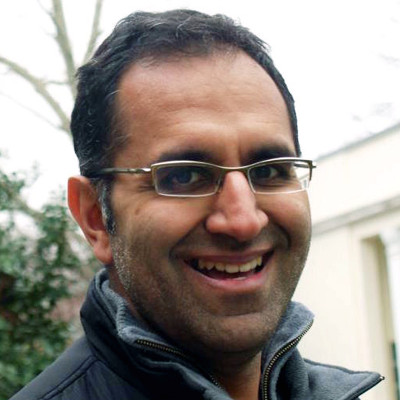
Vikas Nanda
Rutgers University
Dr. Nanda earned his bachelor of science degree in biology at California Institute of Technology, Pasadena and pursued a Ph.D. in protein folding and spectroscopy at Johns Hopkins University, under Dr. Ludwig Brand. He conducted post-doctoral research on computational protein design at the University of Pennsylvania with Dr. William F. DeGrado, after which he joined the faculty of the biochemistry department at Robert Wood Johnson Medical School at Rutgers. He conducts his research at the Center for Advanced Biotechnology and Medicine (CABM). His laboratory applies protein design in diverse areas including food allergy, peptide therapeutic optimization, collagen assembly and origins of life.
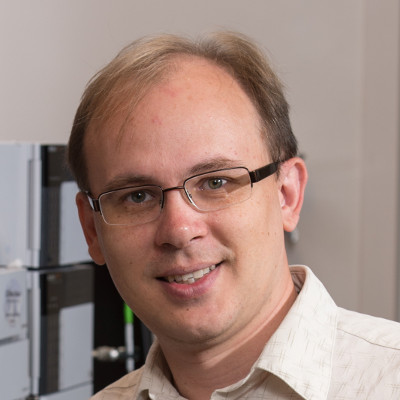
Ivan Korendovych
Syracuse University
Prof. Ivan V. Korendovych received his B.S. and M.S. degrees in inorganic chemistry from the Kyiv National Taras Shevchenko University (Kyiv, Ukraine). He got his Ph.D. degree from Tufts University working on mechanistic aspects of oxygen activation and anion recognition in the lab of Professor Elena Rybak-Akimova in 2006. For his postdoctoral studies Dr. Korendovych joined the group of Professor William DeGrado at the University of Pennsylvania. Since 2011, he is an Assistant Professor at the Department of Chemistry at Syracuse University focusing on various aspects of protein design and engineering. Dr. Korendovych has won many awards including recent Humboldt Research Fellowship (2014), Oak Ridge Associated Universities (ORAU) Ralph E. Powe Junior Faculty Enhancement Award (2013) and ACS Division of Inorganic Chemistry Young Investigator Award (2007).
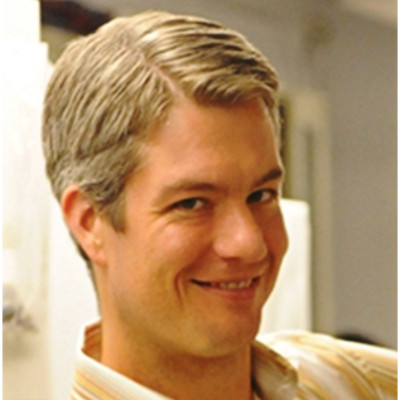
Scott Banta
Columbia
Scott Banta Ph.D. is an Associate Professor of Chemical Engineering at Columbia University. He received his B.S.E. degree from the Department of Chemical and Biochemical Engineering from the University of Maryland, Baltimore County, and his M.S. and Ph.D. degrees from the Department of Chemical and Biochemical Engineering at Rutgers University. He did a postdoctoral fellowship with Professor Martin Yarmush at the Shriners and Massachusetts General Hospitals and Harvard Medical School. He began his faculty career in the Department of Chemical Engineering at Columbia University in 2004 and his research has focused on the engineering of proteins and peptides that exhibit controllable and dynamic conformational behavior and the application of these systems in areas including bioelectrocatalysis, biomaterials, gene and drug delivery, biosensing, and bioenergy.






